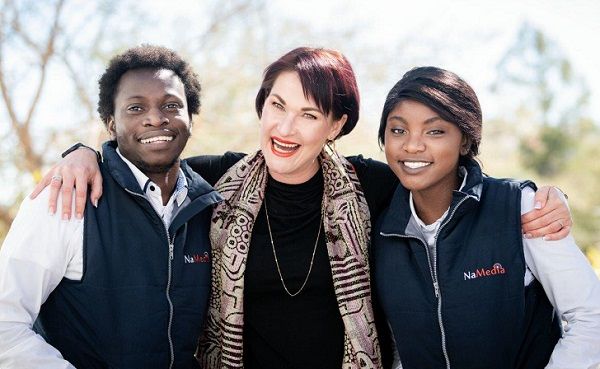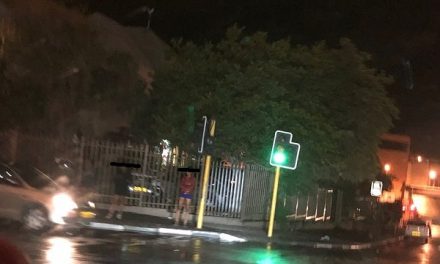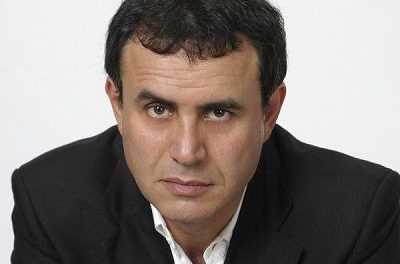
The New Weird. We all want to be heard but what are we listening to?

By Natasja Beyleveld, Managing Director of Namibia Media Monitoring (NaMedia).
Even though global mobile phone penetration is over 95%, we still need to understand what connects people, and what they are connected to on a very personal, existential level.
We’re always competing for attention. The Governor of the Bank of Namibia reminds us that we can only transform by becoming more competitive. Joining the ‘online party’ is now a matter of must, not when, but… How? The GIG Economy has become the new global slang for job creation, but what about that which installs values and discipline, transfers skills (a profession), and why did we neglect to pursue this digital journey prior to Covid?
In the process of digital transformation, a country with a high gini-coefficient remains vulnerable to enlarging the access-divide. Covid-19 has had a noticeable effect on school performance scores across all grades 2020.
Do your consumers have access to a cellphone for interactivity and mere entertainment or can they tap its extensive usage and its power to make innovative contributions?
A digital divide is any uneven distribution in the access to, use of, or impact of information and communication technologies (ICT) between any number of distinct groups, which can be defined based on social, geographical, or geopolitical criteria, or otherwise. The term digital divide was first coined by Lloyd Morrisett, when he was president of the Markle Foundation (Hoffman, et al. 2001).
Trying to avoid funnelling (on demand) the ‘new normal’, we should be asking questions about the tolerated ‘weird’ parts of digital transformation. A booming industry is revolutionizing our lives, some might love it, others won’t. Are we dumbing it down a bit (Tik Tok, series binging, excessive whatever) to survive with this unprecedented change in engagement? Has Covid stolen some of our appetite to excel, or transformed us to become more competitive (big businesses, for sure).
Now more than ever, we’re communicating on every other platform to be heard, but what are we listening to? What have become the important survival skills we’re now testing for implementation? Do we have trust in our political leadership and decision-making processes while some are ‘working’ from home? The amount of reports on corruption and inequality are too many to unrelate from the ongoing economic crisis. But, we keep on smiling through our teeth.
Being relevant certainly requires consistency but it also demands an awareness of the communications (due to skills) gap we have in Namibia. Assuming we’re reaching Northern Namibia by boosting Facebook posts in the region, we have not asked whether we’re relevant, or whether we’ll be heard. First the need (awareness) then the demand (offering) will follow.
What are Namibians asking for most across media? Jobs. Education. Mentorship. Financing. We’re selling to a large percentage of our population that are depressed (high suicide rates), hungry, jobless, and indifferent. You can not see the brand’s reflection (nor political party) on a vaporous mirror. Only by opening the windows will you allow the temperature to change, and the mirror to clear, and only then will the use of the mirror become relevant again.
We hear good stories about sponsorships, partnerships, renovations, foundations, green schemes, stimulus packages, virtual events, incentive based campaigns, smart apps. Transformation is the only normal part about the ongoing changes we all face today, but what is weird is that, while we might be leveraging impact, connection, engagement, we run the risk of becoming irrelevant amidst all the noise. What is needed; is the moment.
What is needed, is human engagement on a personalised level. I’m providing training to a client in my office, and all of a sudden the dude in the suit has transformed to a man in a tracksuit wearing plakkies – now that’s kind of cool. There is a mask, but the ‘human ranks of corporate’ has faded, and somehow made us ‘closer’. We’re all just people in the same crisis now, needing to look after one other in a good way. So while strategizing, don’t loose sight of our present circumstances.
Digital is not available to all (yet). What needs be said also needs be heard on Silozi radio in the remote north-east of Namibia. Digital has taught us that we can not confine our minds to our location anymore, but that our reach must be relevant when others tap in onto our story from whichever media channel they prefer.
We can’t talk ‘up there’ all the time, but what I’ve learned from Covid is that relevance is in the eye of the beholder. You choose the way you look at people, and the way you encourage them to look at you.
Love
Natasja












































